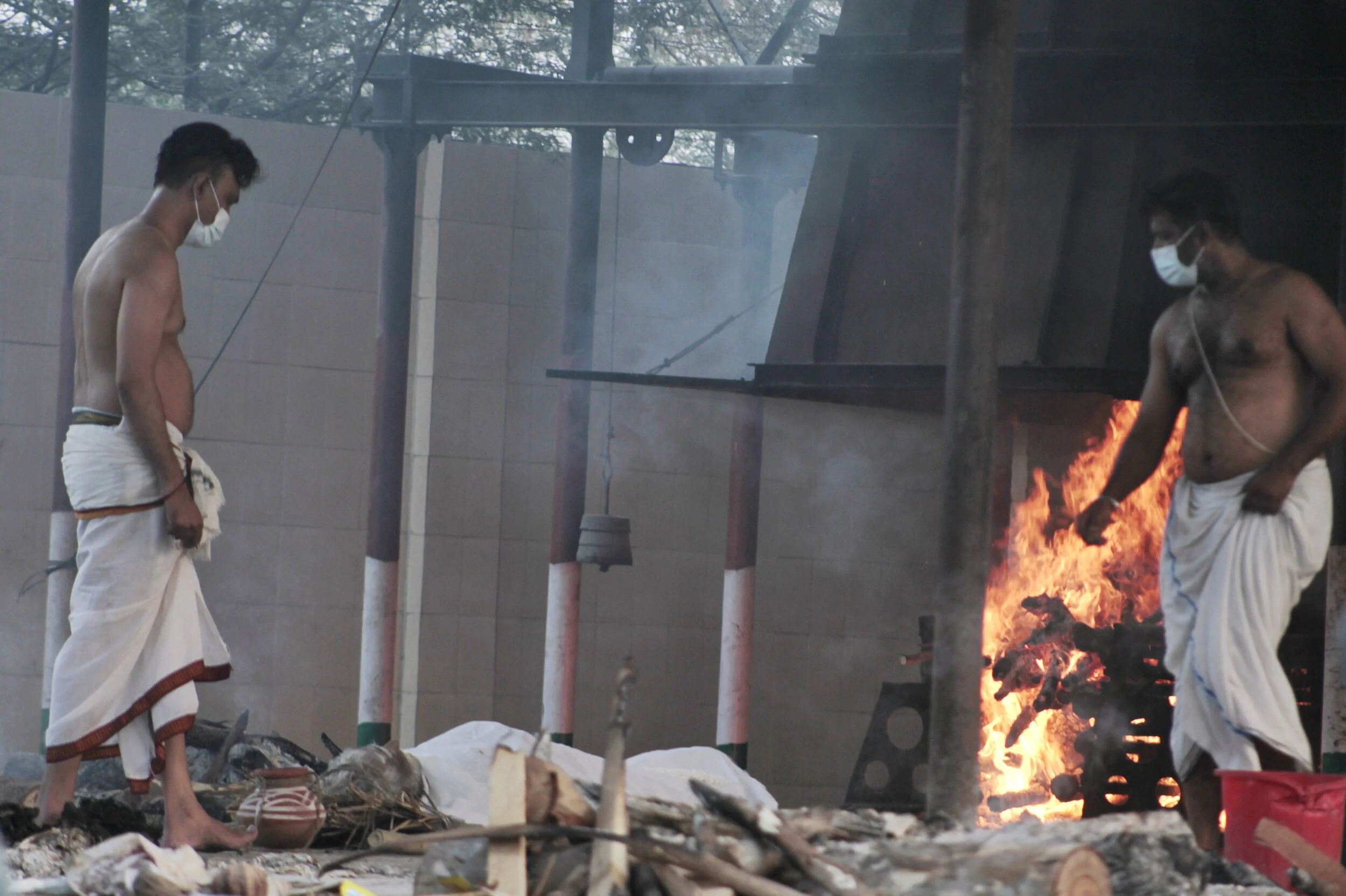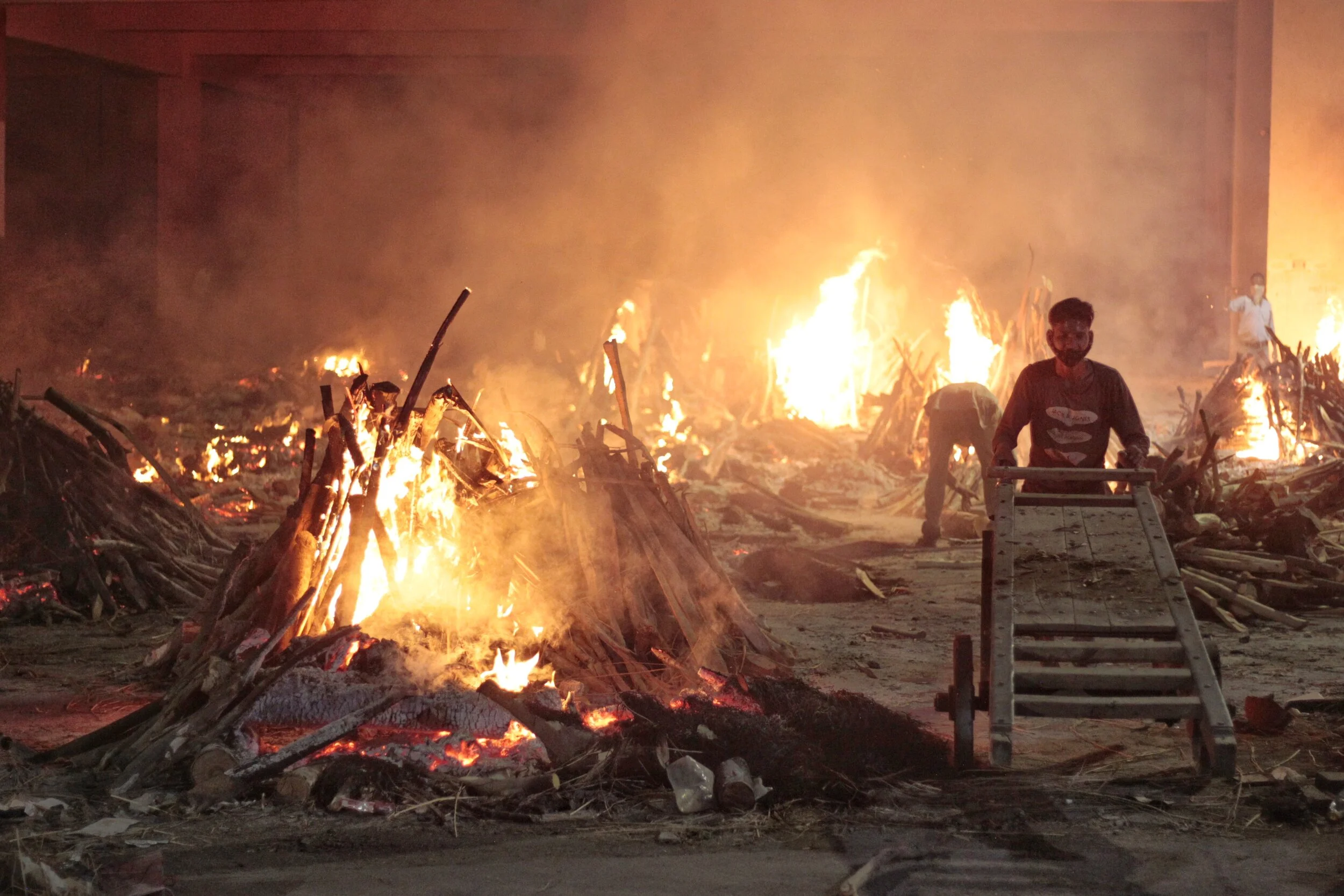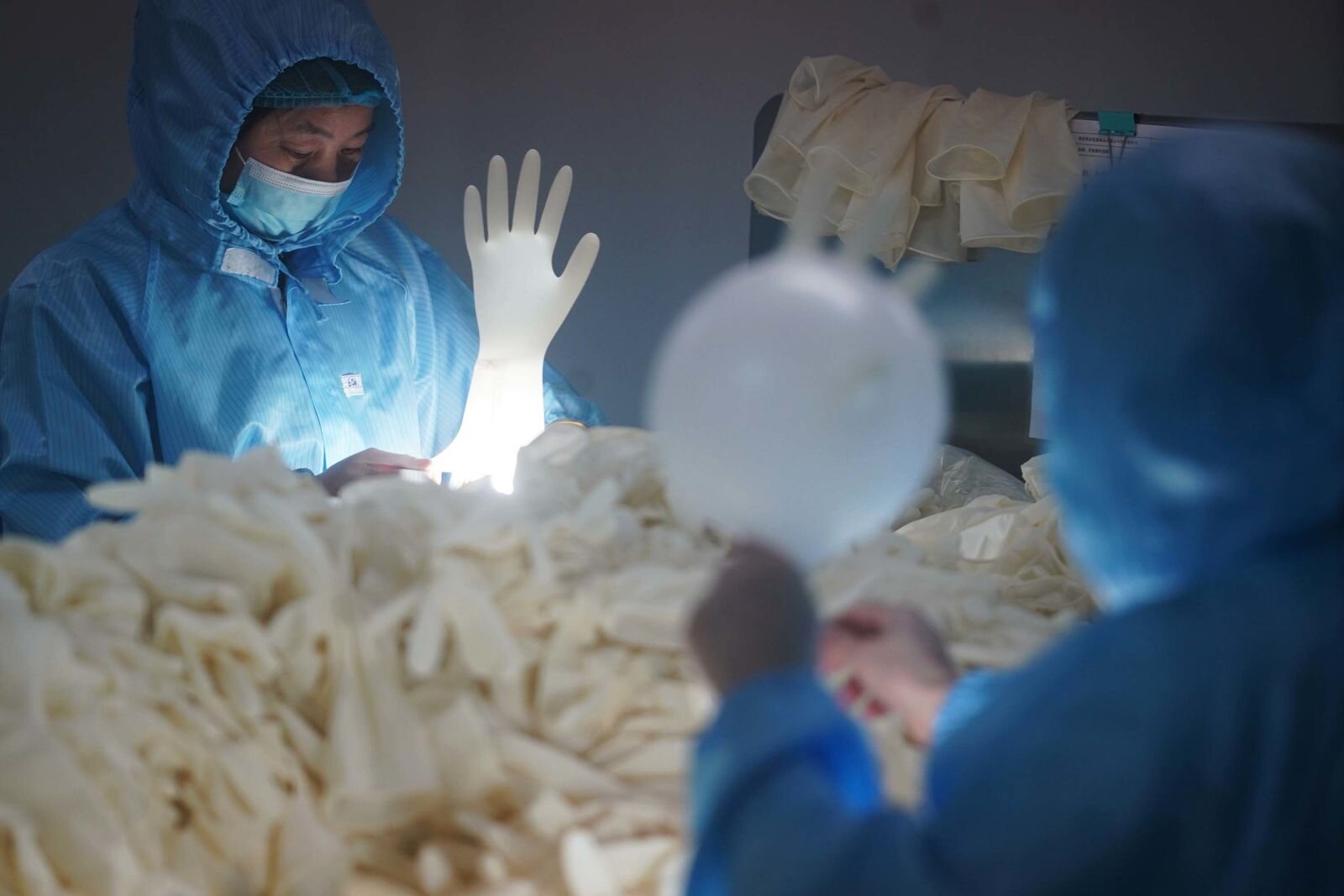
The invisible frontline
A digitally curated collection, 2020
Cover photo by John Minchillo / AP
For many around the world, the choice to stop working during Covid-19 was never an option. Some might be deemed “essential” by the government but many are simply filling an unspoken void in communities for essential services.
Most of these workers take on a tremendous amount of risk and will remain unheralded, but they represent an important part of the historical record of the pandemic that should not be forgotten.
Frontline Warriors/workers working in cremation sites in Delhi. Currently, Delhi is the worst affected place due to the spread of COVID-19. Delhi/India. April, 2021. Akshit Sharma.
Francisco Ramirez delivers groceries to people in need. Small groups of immigrants have been delivering donated food, diapers and formula to families in need, with word spreading via Spanish-speaking Facebook groups and word of mouth. Queens, New York, USA. April 18, 2020. John Minchillo / AP via AP News
“After a month and a half of lockdown and following new orders that allowed re opening of hair salons, Sky opened his Queer Hair Salon located in South Tel Aviv. The salon is a unique place, and Sky states it is "for all genders and hair types". I took the photo as I was interested in small and independent business that were closed for many weeks. Sky told me it was hard getting used to work with a mask and that he booked less people per day, as he needed time between customers to clean and sterilize the palace.” Tel Aviv, Israel. April 27, 2020. Oren Ziv
“Paula, or Aunt Paula as my sister and I would sometimes call her, is the owner of Dolce & Caffe, the cafe and bakery that opened in our neighborhood 15 years ago. If you are looking for the best home-made meals outside of home, this is the place to go (the soups are divine). Before this pandemic started, the business was going quite well. ‘It was a time in which I could finally see the results of my work. To open a cafe had always been a dream of mine, I had always envisioned it as a different sort of cafe. And despite it being small, everything we have here is home-made’, Paula says. But with the arrival of Covid-19, everything came to a halt. At the start of the confinement phase, the cafe was forced to close. Afterward, they were able to open, yet only to sell take-away meals’.” Cascais, Portugal. June, 23, 2020. Carlota Caldeira
Workers at a latex-glove manufacturer. Nanjing , China. February 6, 2020. Ji Chunpeng / Xinhua News Agency / Getty Images
Over 80percent of the people in Malawi largely depend on agriculture. Smallholder farmers grow crops for subsistence and commercial purposes. The Covid 19 pandemic has affected the stakeholder farmers because demand for crops on the market has significantly gone down. Even though they sell (background man with a bicycle going to the market) they do not earn enough. Reluctantly, they send their produce to the market. With the Covid pandemic, they have to protect themselves. Kambitoto in Karonga district, Malawi. May 16, 2020. Richard Nyoni
The photographers
This exhibition is a curation of known professional photographers, as well as images taken by everyday people, capturing the realities of the world during the COVID-19 pandemic. Photographs have been curated from news sources as well as social channels.





















